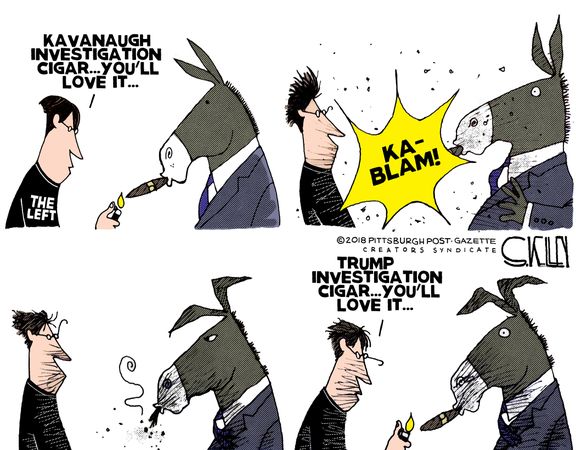WaPo Columnist: Tucker Carlson Is A 'Neo-Nazi Favorite'

On Thursday, Washington Post media critic Erik Wemple attacked Fox News’ Tucker Carlson as a “neo-Nazi favorite.” To support this controversial contention, he cited research from BuzzFeed, which found that The Daily Stormer, a neo-Nazi website run by Andrew Anglin, featured articles about Carlson some 265 times, as opposed to 27 about Sean Hannity, four about Laura Ingraham, and two about Lou Dobbs. Wemple explained:
Whereas a host like Hannity, for example, forever parrots Trump’s talking points — the Robert S. Mueller III investigation is a “witch hunt”; the “fake news” media is out to get the president — Carlson has consistently pursued storylines and polemical themes that please racists. Carlson hypes alleged crimes and dislocation caused by immigration; he demands that U.S. elites defend the cliche that diversity is our greatest strength; he circulates bogus material about South Africa’s alleged injustices against white farmers; and he cheers on Trump’s hard-line immigration policies…. Anglin, who runs the site, has issued a number of boosterish statements about Carlson, includingdescribing him as a “machine of ultimate destruction” and “a one-man HOLOCAUST!”
This is pretty despicable stuff from Wemple. Instead of arguing with Carlson’s opinions (which he doesn't), or convincingly linking them to neo-Nazism (which he can't), he doesn’t even bother to make an argument: instead, he simply says that Andrew Anglin likes Carlson, so Carlson must be a neo-Nazi. This isn’t even guilt by association. It’s guilt by proxy. Carlson hasn’t said anything remotely resembling neo-Nazism, so instead, Wemple and BuzzFeed just glom onto the fact that The Daily Stormer likes him.
That’s precisely what Carlson says when asked about such linkages: that just because he’s popular and some bad people like him does not lead to a conclusion about the merit of his viewpoint. But according to Wemple, that response is insufficient:
The reason the question needs to be posed to Carlson is that he has deflected the matter with his characteristic extemporaneous brilliance when it has been presented to him in the past… no one talks his way around a white-nationalist problem as effectively as Tucker Carlson.
Wemple didn’t like Carlson’s answer. Therefore Carlson is a neo-Nazi fellow-traveler.
This tactical dismissal of Carlson by proxy attack is not only logically insufficient and morally odious, it’s wildly counterproductive. It’s a way of lumping together those outside the normal range of conversation and those within it, thus shrinking the Overton Window even further. And unfortunately, it’s becoming common practice for many on the political Left. Take, for example, this article about billionaire Marc Andreessen: he’s labeled an alt-right fellow traveler because he visits the heterodox publication Quillette. Or take this idiotic study linking me with Richard Spencer through four degrees of separation.
If you can’t argue with ideas, smear popular people with those who follow them. It’s an easy tactic. It’s also dishonest, polarizing, and stupid.











